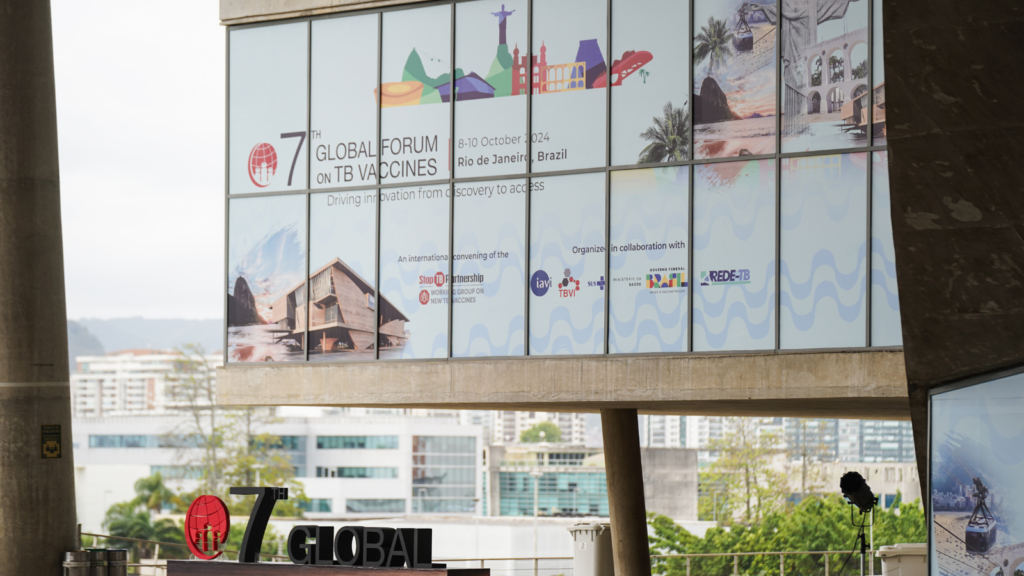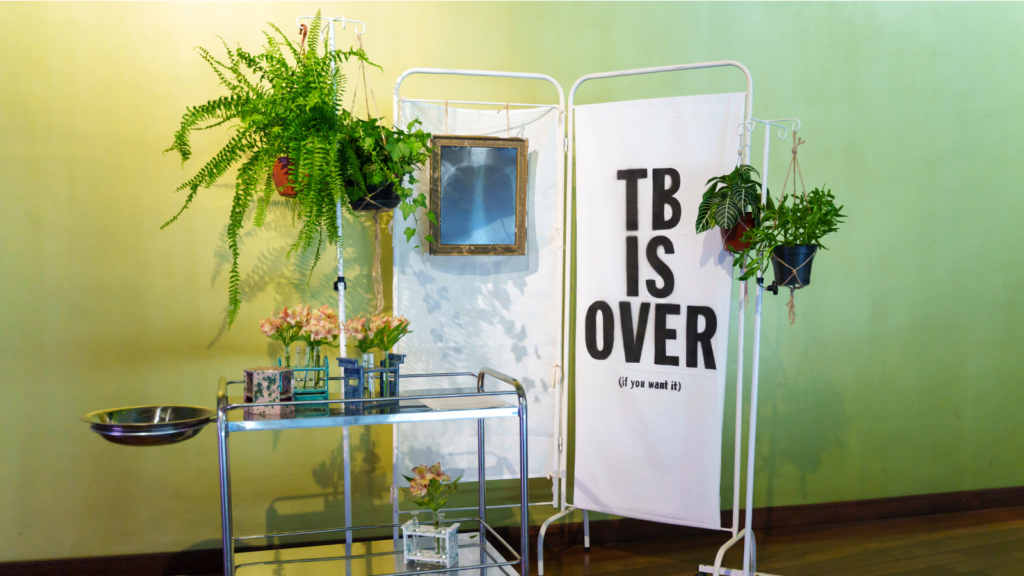December 5, 2024
TB vaccines: Achievable not aspirational
The 7th Global Forum on TB Vaccines stoked optimism but raised questions about how the field can optimize efforts to introduce new vaccines this decade.
By Shaun Palmer*

The tuberculosis (TB) vaccine field has experienced a renaissance in recent decades. Until the 1990s, no novel TB vaccine candidates had been developed since the introduction of the Bacillus Calmette-Guérin vaccine in 1921. Since then, the field has advanced slowly but surely against what is once again the world’s deadliest infectious disease.
These advances helped strike the optimistic tone of the 7th Global Forum on TB Vaccines, which convened over 300 participants in Rio de Janeiro this October. As the first Global Forum to take place in South America, and following the 2023 launch of the World Health Organization (WHO) TB Vaccine Accelerator Council, co-chaired by Brazil and Indonesia, the role of Brazil and the region in the TB vaccine response resounded. “Governments, institutions, and philanthropies are making an intelligent investment by investing in vaccines, particularly in those against TB,” said Miguel Aragon, coordinator of the communicable diseases and environmental determinants of health unit with the Pan American Health Organization (PAHO)/WHO in Brazil. “As PAHO, we also share this commitment, standing together with member states to cooperate in the call for zero deaths, illnesses, and suffering due to TB.”
This year’s theme, “driving innovation from discovery to access,” reflected how the conference has evolved to encompass not just research but also policy and implementation issues. Since the last in-person convening in 2018, multiple vaccine candidates have entered late-stage clinical trials (see the current pipeline). Data are expected as early as this year for VPM1002, a Phase 3 clinical trial of M72 launched earlier this year following last year’s US$500 million investment from the Bill & Melinda Gates Foundation and Wellcome. In addition, a Phase 2b trial of MTBVAC in adolescents and adults is due to start soon, and efforts to prepare for the introduction and roll out of future vaccines have begun in earnest. These advances bring increased attention and renewed optimism to a field long regarded as a neglected area of a neglected disease.
This year’s forum also explored the urgent need to identify new financing methods to support late-stage clinical development of novel candidates and their eventual implementation. At the 2023 United Nations High-Level Meeting on TB, member states committed to invest $5 billion per year in TB research by 2027 and to develop and deliver at least one new TB vaccine by 2028. An estimated $1.25 billion in TB vaccine research is needed to bring about new TB vaccines this decade, yet investments in TB vaccine research have never exceeded $145 million a year.
“We need new partnership and innovative funding models that really go beyond the traditional bilateral, donor-preference driven mechanisms,” said Nina Russell, director of TB & HIV research and development at the Gates Foundation. “This is a broader issue for other global health diseases as well. I think now might be the time for some big ideas that could be supported by donors to establish a new aggregator fund to support late-stage clinical development with a diversity of donors, and TB could be a key target for this.”
Better coordination will also be critical. Whether through aggregated funding, harmonized regulatory pathways and clinical trial protocols, or joint leadership from high-burden countries, participants reaffirmed the need for alignment and collaboration between all organizations working to develop and deliver new TB vaccines. The TB Vaccine Accelerator Council will play a vital role in coordinating efforts to achieve these goals, according to many at the Forum.
Optimization is part and parcel of this approach. While more resources will be a prerequisite to success, speakers emphasized that in this resourced-constrained global health landscape, the TB vaccine field must optimize their use of resources to conduct trials more efficiently, partner more effectively, and deliver new TB vaccines as affordably as possible.
“We are going to have to get more innovative at how we provide bridging studies and regulatory approvals for innovative trial design,” said Jeremy Farrar, chief scientist of the WHO. “Working with the regulators, with communities affected by tuberculosis, and with scientists is absolutely critical so we can anticipate the future rather than react to it.”

While there is genuine optimism that some of the vaccine candidates in late-stage development will ultimately prove effective, speakers underscored the need for multiple shots on goal. This addresses two eventualities: one, the first candidate(s) to successfully reach licensure won’t be a magic bullet, and two, those currently in late-stage testing could yet fail. If they do fail, the pipeline of vaccine candidates in earlier phases of clinical testing isn’t nearly as robust.
Soumya Swaminathan, former chief scientist of the WHO, chairperson of the M S Swaminathan Research Foundation, and veteran TB scientist, shared a frank call to diversify the pipeline and expand basic research. “We need to have as many candidates entering [the pipeline] as possible. We need novel approaches to vaccine discovery. We need much more investment in immunobiology studies and controlled human infection models as we still don’t understand protective immunity. We need better animal models, and we need open science.”
At the same time, advocates and policymakers are also focusing on ways to ensure equitable access to new TB vaccines if and when they are proven effective. Recognizing the growing community involvement in the field, the 7th Global Forum hosted its first Community Engagement Committee, which also developed the Forum’s first Community Declaration.
“I stand here on behalf of the over 1,350 voices of the global TB community who signed the community declaration, representing the hopes, frustrations, and needs of those involved — people united in the fight against TB who believe together we can make a difference,” said Paulina Siniatkina, an artist, TB survivor, and activist.
While new TB vaccines may be within sight, there is still much work to be done. But for delegates at this year’s Forum, there was a clear dynamic of optimism and hope. “TB vaccines are not an aspiration, they are absolutely achievable,” said Michel Kazatchkine, former Director of the Global Fund to Fight AIDS, Tuberculosis, and Malaria.
Read more: Upending the dogma of TB latency: Will it offer new clues for vaccine research?
*Shaun Palmer is a communications and advocacy specialist working with IAVI and is based in Amsterdam, The Netherlands.